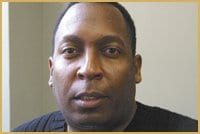A man calling himself a concerned citizen has filed a Radio-television and Telecommunications Commission (CRTC) complaint against RED 93.1 FM, accusing the Surrey-based station of presenting “a very poor image of gays and lesbians” on a Jan 31 morning call-in program.
Robert Greene says he was channel surfing on his car radio when he came across the Harjinder Thind show. There, he claims, he heard the guest interviewee, Len Remple of the Parents for Democracy in Education, allege that he had “tangible evidence or tangible proof that California and Michigan have gay-friendly curriculum that tells students to try gay sex.”
“I think that’s what bothered me first,” says Greene, adding “there’s no curriculum in any place that I know that promotes any sort of sexual activity, be it gay or straight.”
When contacted for comment, Remple maintains what he said was California and Michigan “were teaching about it” in their curriculum.
Remple says he appeared on Thind’s show primarily to let people in the Sikh community know about the Corren agreement.
The Corren agreement refers to a human rights complaint the BC government settled in 2006 with gay education activists Peter and Murray Corren, who alleged the omission of gay realities from public school curriculum violated the BC Human Rights Code.
In settling the complaint, the provincial government promised to pilot of an elective course on social justice issues; tighten restrictions on students opting out of classes they or their parents find objectionable; and to develop, in consultation with the Correns, gay-friendly guidelines to help ministry staff evaluate course content in their regular curriculum reviews.
A draft of the Social Justice 12 curriculum is available for review on the ministry’s website, with a final draft scheduled for September. It is expected that the course will then be offered as an elective and will be available to both public and independent schools in BC. Schools will decide whether to offer the course based on demand.
Greene claims he heard Remple say on-air that the BC government “has secretly put in curriculum that is gay-friendly and that they didn’t check with Health Canada.”
Remple says the BC government insufficiently publicized details of its agreement with the Correns.
Greene says what bothered him most was his inability to offer his own dissenting opinion to Thind’s listeners.
“When I did call into the radio station, the show was still on,” Greene recalls. “They did not invite me to speak with [Remple]. What they did was they took my name and number and said, ‘We’ll call you in an hour.’
“The person I spoke to, he had no idea what was going on in terms of the topic of conversation, who the guest speaker was. I felt like I was pushed around to get me out of the way,” Greene alleges.
“They did call me back to say, ‘This is the speaker, this is his phone number, he has all his documentation,'” he notes.
“It was an open line, anybody could have called in regardless of their sexual orientation,” says Thind when asked to comment on Greene’s allegation that the show predominantly featured callers who supported Remple’s views.
“I don’t know what happened between him and the other person that he spoke to at the station. One thing I can tell you is he’s wrong when he was saying no other opinion was expressed. There were opinions expressed contrary to the guest’s opinion,” Thind maintains.
“I’m sorry if he felt that way about the station but we try to accommodate everybody,” he adds.
Thind says he has “no way of knowing” if a complaint has been filed at the CRTC, referring Xtra West to the station’s general manager Bijoy Samuel.
“Not yet,” says Samuel when asked if he has received notice of Greene’s complaint.
“What happened on air, I did not listen to that, so I would have to go back to listen to it, that’s for sure,” Samuel says. “If a CRTC complaint has been filed then a process will be followed. Then we would get a copy of the complaint, then we’d review it and if there is something that needs to be done, then we will [do it].”
As for Greene’s allegation that he was given the runaround when attempting to get on the air, Samuel says “that’s debatable.”
“If he had called in like any other caller, once the call is screened by the person, it goes on the air, so there would be no reason they would stop anyone else from going on air. [It’s] equal opportunity,” Samuel contends.
“I would disagree with that completely,” Greene counters. “There was neither an invite or a passage through to the parties involved. I never got to speak to a screener. I never got to the guy that was hosting the show. Had I got to a second level of person that knew something about the show, that would have [rung] true. But that’s not true,” Greene argues.
Meanwhile, Greene says he received correspondence from the CRTC saying that his complaint is now with the Canadian Broadcast Standards Council (CBSC) or review.
Cheryl Grossi of the CRTC says it’s the CBSC, a self-regulatory industry group, that handles the majority of complaints.
“Anything regarding programming, we do send it over to the Canadian Broadcast Standards Council,” says Grossi.
“Having said that, what the process is, is they will go and ask the licensee for their response. They also have the opportunity to call for tapes to review, and then they’ll make a determination. If the client is not satisfied with the process, he may then ask for it to go for a ruling by the board and directors of the council. If they’re not happy, the client can go back to [the CRTC] and say they’re not happy with the CBSC ruling, and then we’ll get involved.”


 Why you can trust Xtra
Why you can trust Xtra


